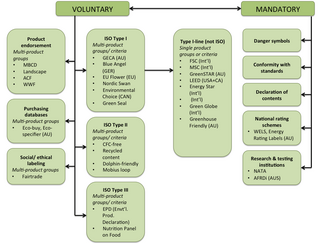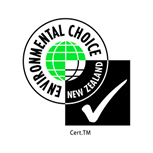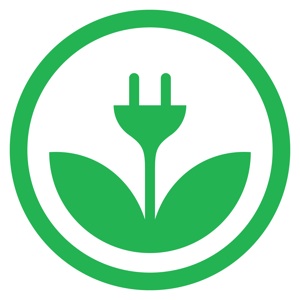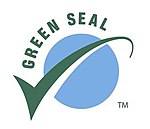
Energy Star is a program run by the U.S. Environmental Protection Agency (EPA) and U.S. Department of Energy (DOE) that promotes energy efficiency. The program provides information on the energy consumption of products and devices using different standardized methods. The Energy Star label is found on more than 75 different certified product categories, homes, commercial buildings, and industrial plants. In the United States, the Energy Star label is also shown on the Energy Guide appliance label of qualifying products.

Organic certification is a certification process for producers of organic food and other organic agricultural products. In general, any business directly involved in food production can be certified, including seed suppliers, farmers, food processors, retailers and restaurants. A lesser known counterpart is certification for organic textiles that includes certification of textile products made from organically grown fibres.

The Forest Stewardship Council GmbH (FSC) is an international non-profit, multistakeholder organization established in 1993 that promotes responsible management of the world's forests via timber certification. This organization uses a market-based approach to transnational environmental policy.

Green building refers to both a structure and the application of processes that are environmentally responsible and resource-efficient throughout a building's life-cycle: from planning to design, construction, operation, maintenance, renovation, and demolition. This requires close cooperation of the contractor, the architects, the engineers, and the client at all project stages. The Green Building practice expands and complements the classical building design concerns of economy, utility, durability, and comfort. Green building also refers to saving resources to the maximum extent, including energy saving, land saving, water saving, material saving, etc., during the whole life cycle of the building, protecting the environment and reducing pollution, providing people with healthy, comfortable and efficient use of space, and being in harmony with nature. Buildings that live in harmony; green building technology focuses on low consumption, high efficiency, economy, environmental protection, integration and optimization.’

Ecolabels and Green Stickers are labeling systems for food and consumer products. The use of ecolabels is voluntary, whereas green stickers are mandated by law; for example, in North America major appliances and automobiles use Energy Star. They are a form of sustainability measurement directed at consumers, intended to make it easy to take environmental concerns into account when shopping. Some labels quantify pollution or energy consumption by way of index scores or units of measurement, while others assert compliance with a set of practices or minimum requirements for sustainability or reduction of harm to the environment. Many ecolabels are focused on minimising the negative ecological impacts of primary production or resource extraction in a given sector or commodity through a set of good practices that are captured in a sustainability standard. Through a verification process, usually referred to as "certification", a farm, forest, fishery, or mine can show that it complies with a standard and earn the right to sell its products as certified through the supply chain, often resulting in a consumer-facing ecolabel.

Certified wood and paper products come from responsibly managed forests – as defined by a particular standard. With third-party forest certification, an independent standards setting organization (SSO) develops standards for good forest management, and independent auditing companies issue certificates to forest operations that comply with those standards.

The Blue Angel is an environmental label in Germany that has been awarded to particularly environmentally friendly products and services since 1978. The owner of the label is the Federal Ministry for the Environment, Nature Conservation, Building and Nuclear Safety.
The Global Ecolabelling Network (GEN) is a non-profit network composed of some 29 ecolabel organisations throughout the world representing nearly 60 countries and territories, with two associate members and a growing number of affiliate members, one of which is Google. GEN members have certified over 252,000 products and services for environmental leadership. GEN was established in 1994.

Leadership in Energy and Environmental Design (LEED) is a green building certification program used worldwide. Developed by the non-profit U.S. Green Building Council (USGBC), it includes a set of rating systems for the design, construction, operation, and maintenance of green buildings, homes, and neighborhoods, which aims to help building owners and operators be environmentally responsible and use resources efficiently.

The Environmental Choice Program is an ecolabelling scheme that was established by Environment Canada in 1988 with over 300 categories of products to help consumers identify services/products which are less harmful to the environment.

Sustainable Development Strategy for organizations in Canada is about the Government of Canada finding ways to develop social, financial, and environmental resources that meet the needs of the present without compromising the ability of future generations to meet their own needs in Canada. A Sustainable Development Strategy for the organization needs to be developed that establishes the Sustainable Development goals and objectives set by the Auditor General Act of Canada and provides the written policies and procedures to achieve them. Sustainable Development is based on responsible decision-making, which considers not only the economic benefits of development, but also the short-term and long-term, Canadian environment and environmental impacts.
Sustainable procurement or green procurement is a process whereby organizations meet their needs for goods, services, works and utilities in a way that achieves value for money on a life-cycle basis while addressing equity principles for sustainable development, therefore benefiting societies and the environment across time and geographies. Procurement is often conducted via a tendering or competitive bidding process. The process is used to ensure the buyer receives goods, services or works for the best possible price, when aspects such as quality, quantity, time, and location are compared. Procurement is considered sustainable when organizations broadens this framework by meeting their needs for goods, services, works, and utilities in a way that achieves value for money and promotes positive outcomes not only for the organization itself but for the economy, environment, and society.

The Sustainable Forestry Initiative (SFI) is a sustainability organization operating in the U.S. and Canada that works across four pillars: standards, conservation, community, and education. SFI was founded in 1994 by the American Forest & Paper Association (AF&PA). SFI is the world's largest single forest certification standard by area. SFI is headquartered in Ottawa and Washington, D.C.
The Collaborative for High Performance Schools (CHPS) is the United States' first green building rating program especially designed for K-12 schools. CHPS provides information and resources to schools in order to facilitate the construction and operation of high performance institutions. A high performance school is energy and resource efficient as well as healthy, comfortable, well lit, and containing the amenities for a quality education.

Environmental Choice New Zealand (ECNZ) is the official ecolabel of New Zealand. The label is owned and endorsed by the Ministry for the Environment of the New Zealand Government. The Environmental Choice programme, which started in 1992, is administered by the New Zealand Ecolabelling Trust on behalf of, but independently from, the Ministry for the Environment. The trust and the programme are part of the Global Ecolabelling Network.

EKOenergy is a globally active nonprofit ecolabel for renewable energy. It is owned by the Finnish Association for Nature Conservation and managed in cooperation with other environmental NGOs.
Energy management includes planning and operation of energy production and energy consumption units as well as energy distribution and storage. Objectives are resource conservation, climate protection and cost savings, while the users have permanent access to the energy they need. It is connected closely to environmental management, production management, logistics and other established business functions. The VDI-Guideline 4602 released a definition which includes the economic dimension: "Energy management is the proactive, organized and systematic coordination of procurement, conversion, distribution and use of energy to meet the requirements, taking into account environmental and economic objectives". It is a systematic endeavor to optimize energy efficiency for specific political, economic, and environmental objectives through Engineering and Management techniques.
Sustainable products are products who are either sustainability sourced, manufactured or processed that provide environmental, social and economic benefits while protecting public health and environment over their whole life cycle, from the extraction of raw materials until the final disposal.
The Green Building Initiative (GBI) is a 501(c)(3) nonprofit organization that owns and administers the Green Globes green building assessment and certification in the United States and Canada. It was established in 2004 and is headquartered in Portland, Oregon.
Healthy building refers to an emerging area of interest that supports the physical, psychological, and social health and well-being of people in buildings and the built environment. Buildings can be key promoters of health and well-being since most people spend a majority of their time indoors. According to the National Human Activity Pattern Survey, Americans spend "an average of 87% of their time in enclosed buildings and about 6% of their time in enclosed vehicles."













